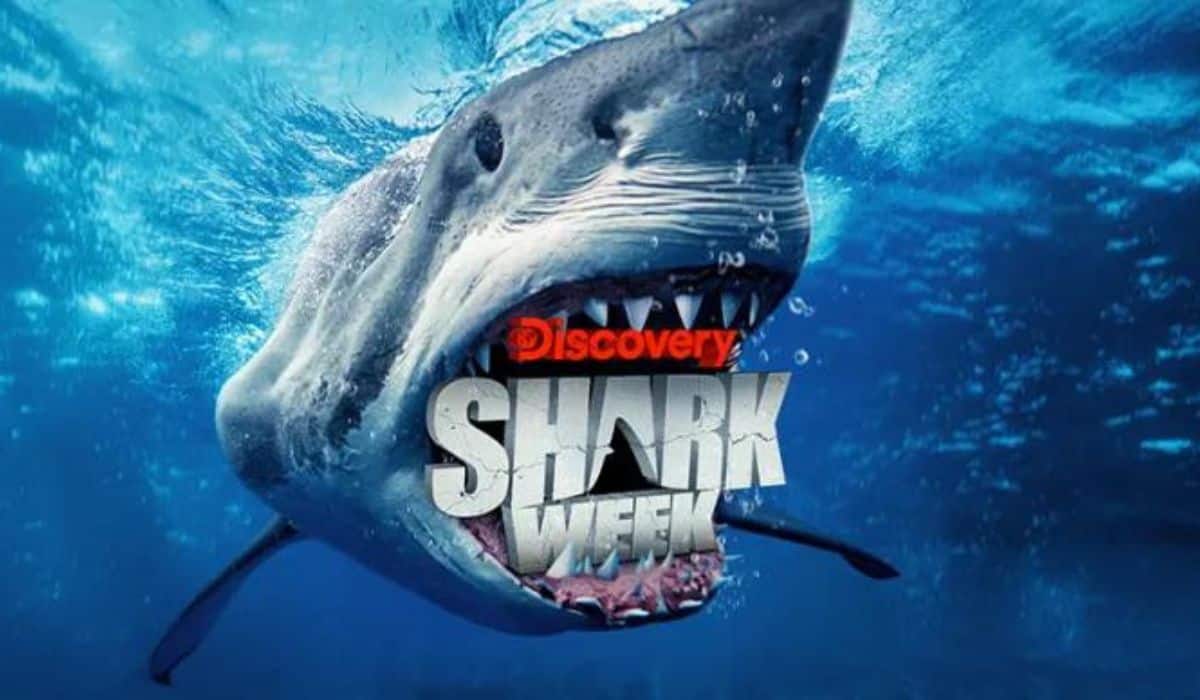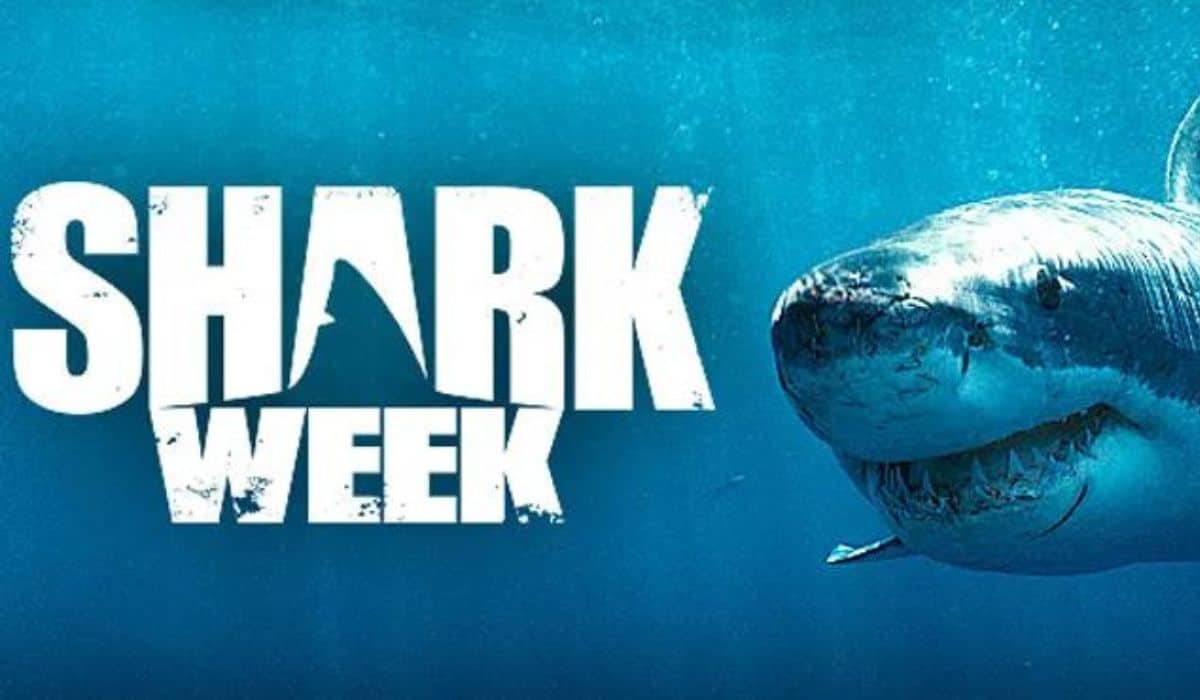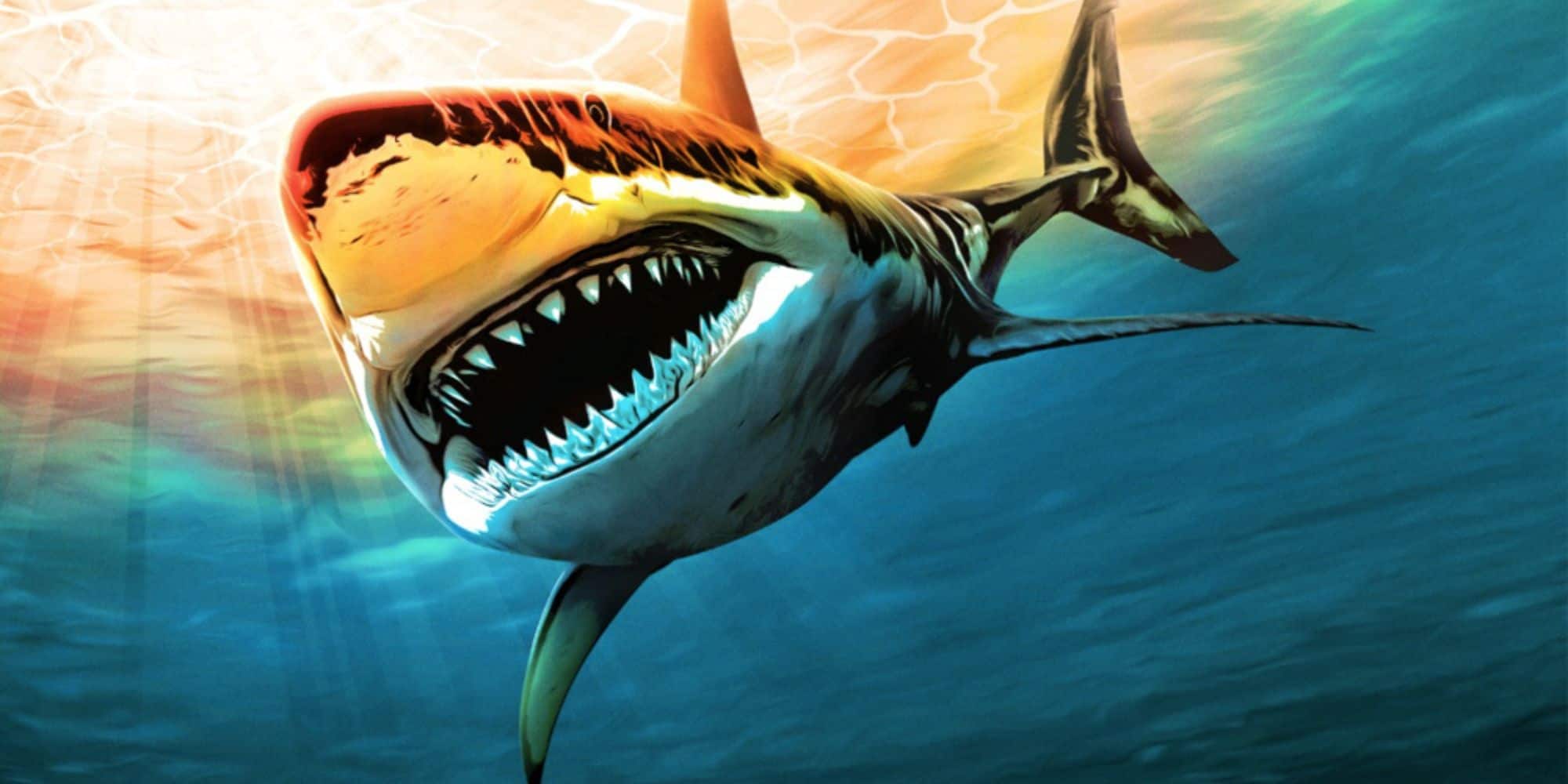Here is an introduction that adds an element of mystery: Something sinister lurks in the ocean depths. Each summer, millions of viewers are drawn to their televisions by an irresistible siren song. Lured by thrilling tales of underwater predators, they feel an instinctive, primal fascination take hold.
What phenomenon could instill such fear yet captivation in so many people? One week out of the year, the Discovery Channel sinks its teeth into humanity’s obsession with sharks. For over three decades, Shark Week has tapped into our awe and anxiety around these apex ocean hunters.
Through gripping documentaries and dramatized specials, Shark Week takes viewers into the shadowy world of sharks and uncovers the mysterious hold they have over our collective imagination. This article explores why Shark Week has become an unmissable ritual for audiences across America.
Join us as we dive deep into the elements that transformed Shark Week into a pop culture juggernaut, from its focus on its predatory power to its edge-of-your-seat suspense. We’ll unravel the enigmatic draw of Shark Week and why we just can’t seem to turn away. Something primal is calling from the dark watery depths next July – will you answer?
Also Read: 20 TV Shows Like Survivor To Watch
Why is Shark Week a thing? Everything to know
Every summer, the Discovery Channel dedicates a full week of programming to sharks during what has become known as “Shark Week.” This annual event draws in millions of viewers and has become a major pop culture phenomenon. But why has an entire week all about sharks become such a big deal? There are several factors that explain Shark Week’s popularity and success.

First and foremost, sharks capture people’s imaginations like few other animals can. As apex ocean predators and perfectly evolved killing machines, sharks represent one of the last truly wild frontiers on the planet. Even though shark attacks on humans are exceedingly rare, they invoke a primal fear within us – the terror of being eaten alive.
Additionally, sharks possess an alien, prehistoric quality that fascinates us. Their sleek, torpedo-shaped bodies, rows of serrated teeth, and emotionless black eyes look like something out of science fiction. Sharks have existed for hundreds of millions of years, predating the dinosaurs. When we look at a shark, we marvel at this living fossil and how perfectly adapted it is to its underwater domain.
Our fear and fascination with sharks also stem from their occasional attacks on people. While shark attacks are rare overall, with only about 150 worldwide each year, they generate massive amounts of media coverage and public interest when they do occur. A single shark attack story will dominate headlines for days. The randomness and seeming arbitrariness of why sharks sometimes bite humans only adds to the horror and mystery surrounding them.

Shark Week taps into this fear and fascination that many people instinctively feel toward sharks. It began in 1988 after Discovery aired a highly-rated documentary called Caged in Fear, which featured underwater photographer Ron Taylor swimming in a shark cage surrounded by over a dozen great white sharks.
Also Read: 12 Shows Like Unstoppable That You Should Watch
Discovery then decided to build on the success of this documentary by creating Shark Week as a collection of shark-focused programs that aired in mid-summer when people were flocking to the beach and thus already had sharks on their minds. The documentary footage captures sharks exhibiting fascinating predatory behavior, investigating camera equipment with their highly sensitive electrical receptors, engaging in brutal fights with other sharks, and breaching the water in pursuit of seals.
Shark Week also relies heavily on building suspense and drama. Ominous background music warns of lurking dangers as sharks suddenly appear on screen to strike their prey or investigate divers in cages. The filmmakers constantly play up the imminent risk of sharks attacking or showing aggressive behavior.

Over the years, Shark Week has also featured specials that highlight shark research and conservation. These documentaries bring in shark experts who share fascinating facts about shark biology, behavior, and their importance to ocean ecosystems.
Shark Week has also become a major pop culture event, with celebrities and athletes appearing on shows, shark-themed products hitting store shelves, and parties being held to coincide with the week. Millions of people participate in Shark Week festivities and treat it as a midsummer ritual. The Discovery Channel promotes Shark Week all year long across its platforms, ensuring the hype builds steadily until shark mania reaches a fever pitch in mid-July.
For over 30 years, Shark Week has made sharks must-see TV. Its winning formula of showcasing amazing shark footage combined with building suspense and drama has made Shark Week an appointment viewing. Shark Week taps into our primal fascination with sharks and brings us up close to one of the most fearsome and enigmatic creatures on Earth. For one week each summer, sharks take center stage and capture our imaginations all over again.




